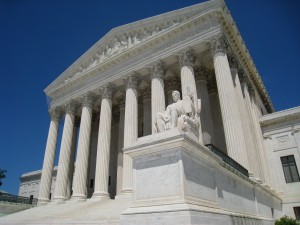By JOHN KANELIS / johnkanelis_92@hotmail.com
Donald Trump was fond of reminding us that “elections have consequences.” Of course, he was right. They do and those consequences often present themselves in the form of judicial nominations.
Joseph Biden also knows that truism and he demonstrated just how consequential his election as president might become for the nation’s judicial system. President Biden rolled out his first list of court nominees and they are a truly diverse bunch.
Biden’s nominees include plenty of women, African-Americans, Asian-Americans, a Muslim, a smattering of men, as well as Anglos of both genders.
Already, one of those nominees, Judge Ketanji Brown Jackson, is being discussed as a possible nominee to the U.S. Supreme Court in the event a vacancy occurs. Justice Stephen Breyer, appointed to the court in 1997 by President Clinton, is thought to be considering retirement once the court’s term expires later this year.
Biden has pledged to name an African-American woman to the nation’s highest court. Given that he made a similar promise when he named a vice presidential nominee, I am going to take him at his word that he will do what he promised. Judge Jackson fits the description.
However, I want to offer this suggestion for a way to diversify the SCOTUS: Find someone who didn’t earn a law degree from either Harvard or Yale University.
All but one of the justices on the court received their legal degree at one of those schools. Hmm. It makes me wonder whether the rest of the nation’s legal institutions are worth a damn. Well, of course they are! Which is why I would hope President Biden could cast his Supreme Court nomination wide, far beyond those Ivy League enclaves. Judge Brown is a Harvard Law grad. The only non-Ivy Leaguer on the high court is its newest justice, Amy Coney Barrett, who earned her law degree at Notre Dame.
Biden releases first wave of judicial nominees – POLITICO
I once made a similar request of Texas Gov. Rick Perry, who was considering an appointment to the Texas Supreme Court. It dawned on me years ago that the Texas high court comprised justices who resided strictly between Interstates 35 and 45. I implored Gov. Perry to look for someone beyond that corridor. As it turned out, a highly qualified appellate judge from Amarillo, Phil Johnson, applied for that vacancy.
What do ya know? Perry appointed Johnson to serve on the court. Either he heard my plea which I made on the editorial page of the Amarillo Globe-News, or he listened to the advice of aides who had been strong-armed by legal eagles in West Texas to select someone from our part of the state.
Whatever. I think President Biden could rethink how he wants to apply diversification to the nation’s legal network by looking for a Supreme Court justice who didn’t earn his or her law degree in the hallowed halls of the Ivy League.
